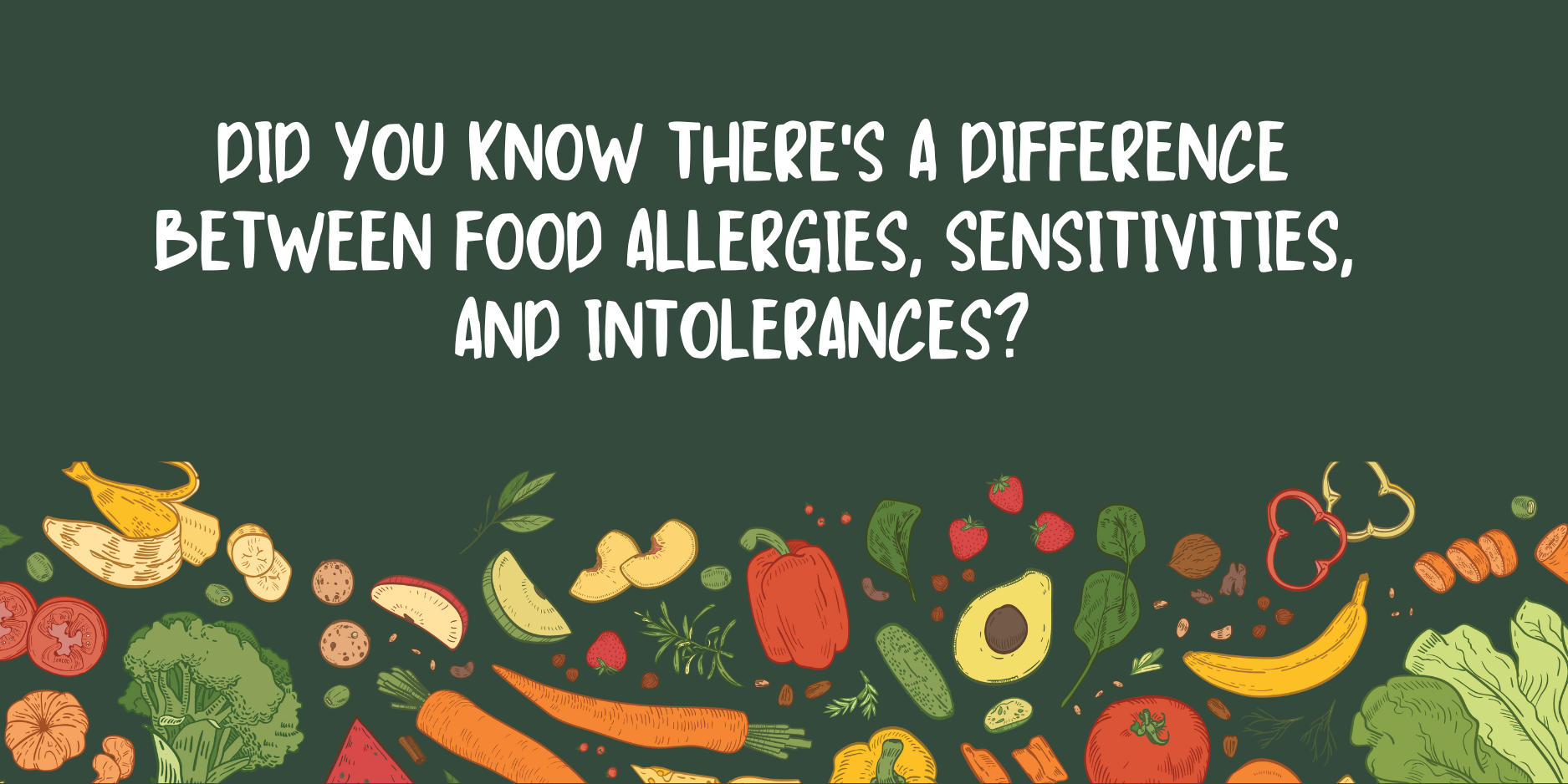
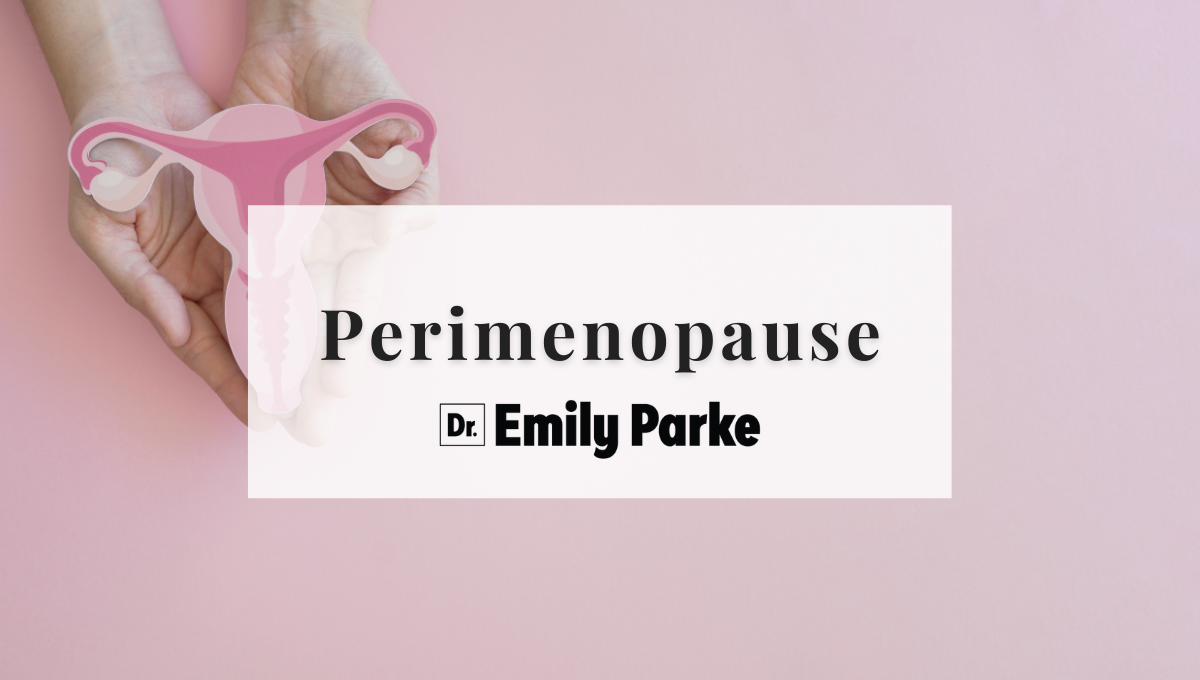
Hi. This is Dr. Emily Parke with your next Functional Health Minute. Now I’d like to take a few minutes to talk about what happens during the perimenopausal timeframe. So let’s start with talking about menopause. The average age of menopause is anywhere between age 50 to 52. But again, that’s average. So you could start menopause earlier and of course you could start menopause later. And the definition of menopause is no period cycles at all for 12 consecutive months. And that’s an important definition to remember. The perimenopausal period can last anywhere from a few months up to several years, just depends on who you are and what’s going on with your hormones and a little bit of luck or not luck as it turns out.
Sometimes when you go through menopause, can run in your family, so it’s nothing genetically inherited specifically, let’s say. But if your mom, let’s say, went through menopause later in life, maybe you would too, or vice versa, if she went through it earlier, you might also. But there’s really so many factors that contribute to when you will go into menopause.
Perimenopausal Timeframe
So the perimenopausal timeframe is when you’re going to start to see a lot of hormone shifts. And the first one that starts to happen is related to ovulation and your progesterone. So even if you’re still ovulating regularly around the perimenopausal timeframe. For most of us, this is in our 40s, late 40s to be more specific. Even if you are still ovulating, the corpus luteum that is responsible for progesterone production after you ovulate, it’s not quite as robust as it was when we were in our twenties. So what starts to happen is our progesterone levels kind of start to drop a little bit, and then we get a relative estrogen dominance. So that’s where a lot of perimenopausal symptoms are going to come from, a relatively low progesterone in relation to the estrogen levels.
So the first thing that we do is we support healthy progesterone levels. So in doing that, there’s several things that you have to consider. One is supporting the adrenals. That’s always really important. And that includes lifestyle things like making sure you’re getting enough good quality sleep. You’re exercising enough but not too much. You’re getting good nutrition, you’re sleeping well and enough. So doing those lifestyle things first, but doing some adrenal adaptogens can be really, really helpful also. I really like one called Stress Support that I make. It has ashwagandha, rhodiola and a bunch of really good adrenal loving herbs in it. So we start with adrenal support. And then we really want to give progesterone a little boost. I really like to use something called Chaste Tree Barry or Vitex. It can be really, really helpful in smoothing out the period cycles.
Hormone Levels
And then as things kind of progress, as progesterone levels continue to dwindle out and or we’re going to start to get some period cycles where we’re not going to ovulate. So periods can come. You can start short cycling or you could ovulate and then your luteal can start to shorten so you might start to get periods around day 21, day 23, earlier than you were before. Or you may even get some period cycles where you don’t ovulate. And if that happens, a lot of times you end up with a longer cycle. So you might end up with 40 days in between and so on and so forth. And depending on what’s going on hormonally will dictate how you feel. Those really high estrogen levels. You might expect typical symptoms like you might be irritable. You might have food cravings. You might feel bloated. You might get headaches, those kinds of symptoms.
Estrogen Levels
And then if estrogen levels are really low, you can also feel irritable, but it’s in a different way. This is where sleep starts to go if estrogen levels are low, obviously this is where the typical symptom of hot flashes start to happen. But here’s the thing about perimenopause. It can all change in a blink. So it makes it kind of fun to try and manage. But you can have period cycles that seem relatively normal and maybe even for a few months in a row or more, and then you may have one where you don’t ovulate and that’s a longer cycle and you have those symptoms, or you might have one where you short cycle and ovulate early.
And so you can have symptoms of higher estrogens. You can have symptoms of low estrogen. You can have symptoms of lower progesterone. And so, managing that can be challenging during the perimenopause timeframe because it can change from month to month. And I’ve seen this on laboratory values over and over again with my patients over the years. You might check one time and I might see a really high estrogen level and then we’ll start treating that. And then a couple of months later, it’s like, “Whoa, where did your estrogen go? It dropped to zero,” and then you start normal cycles again.
So it is a bit of a rollercoaster. Again, it doesn’t mean there’s nothing that can be done in the perimenopausal timeframe. It’s actually quite the opposite. There’s a lot that can be done. It just depends on what’s going on with your symptoms and your hormones specifically. And then of course all the other things we do in functional medicine in the backdrop. We’re making sure nutrition, sleep, exercise and movement, stress management, toxin reduction, nutrient deficiencies are treated, gut health is going really well, and detoxification pathways are open. We’re wanting to do everything we can to support hormones naturally. This is Dr. Emily Parke with your Functional Health Minute.
Share:
Dr. Emily Parke
Social Media
Most Popular Posts

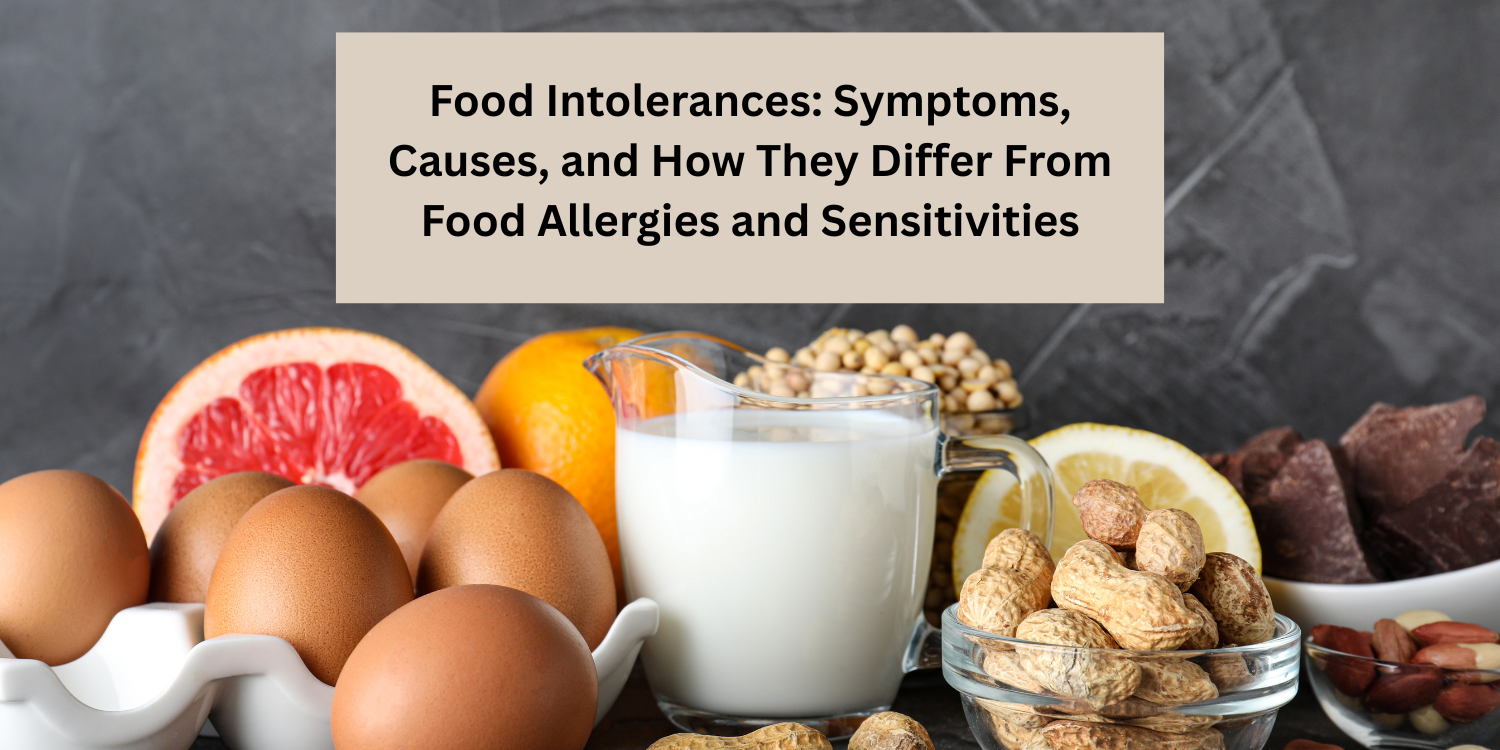
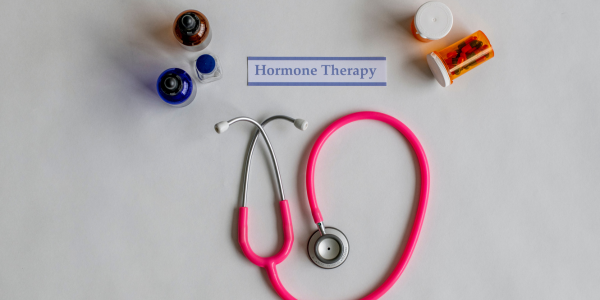
Testosterone Replacement In Menopause
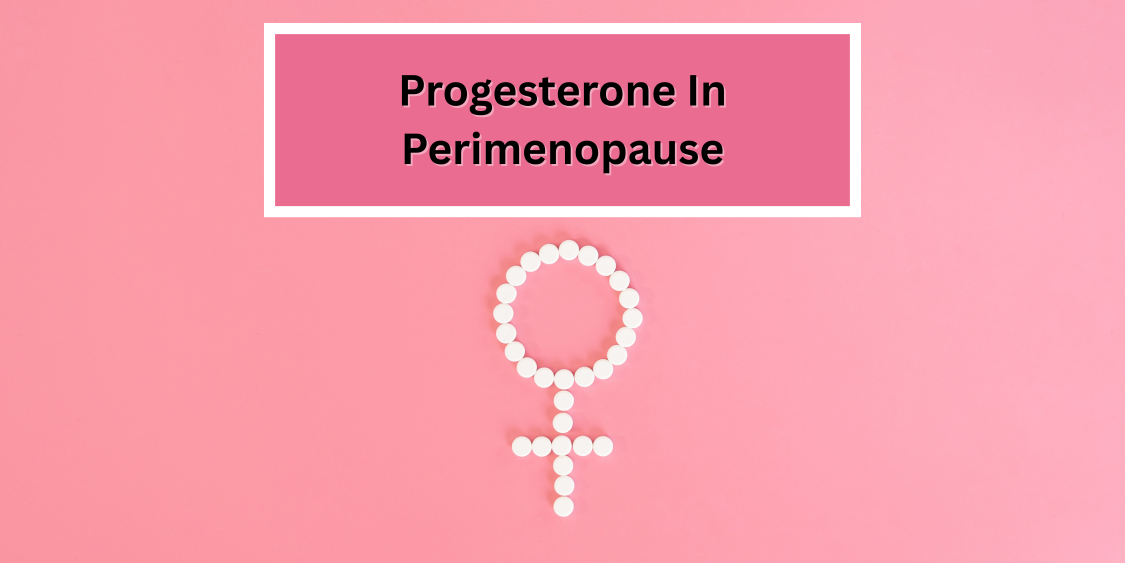
Progesterone Therapy In Perimenopause
Subscribe To Our Newsletter
Related Posts

Did you know there’s a difference between food allergies, sensitivities, and intolerances?
Did you know that there’s a difference between food allergies, food sensitivities and food intolerances? Food allergies, the reactions tend to happen pretty immediately and

Food Intolerances: Symptoms, Causes, and How They Differ From Food Allergies and Sensitivities
Eating a wide variety of whole foods is a key way to ensure a nutrient-rich diet full of vitamins and minerals. But what happens when

Testosterone Replacement In Menopause
What about adding testosterone replacement for women on hormone replacement therapy? Well, it can be really, really helpful for energy, libido, body composition changes. When

Progesterone Therapy In Perimenopause
What about progesterone therapy in menopause? So if you are on hormone replacement therapy with estrogen and you have a uterus, meaning you have not
